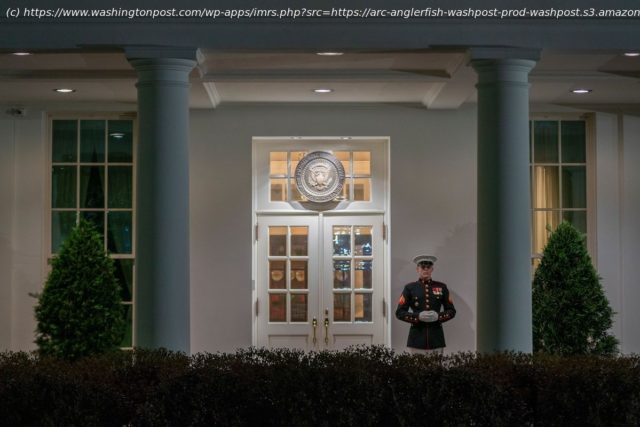Biden administration officials said the U.S. won’t join any Israeli response to Iran’s attack and urged the Netanyahu government to avoid escalation.
The Biden administration on Sunday congratulated Israel — along with itself and allies — on their “spectacular” success in fending off an unprecedented barrage of more than 300 Iranian missiles and armed drones, even as it made clear its desire for Prime Minister Benjamin Netanyahu’s coalition government to declare victory and refrain from striking back.
The United States remains “committed to defending Israel,” a senior administration official said, and “what you saw last night,” as Israeli air defense — supplemented by U.S. planes and warships — shot down 99 percent of the Iranian fires, “is what that means in practice. … We are ready to do it again if we have to.”
But this official and others who spoke in official briefings, background interviews and on television throughout the day, emphasized that the United States would not participate in any offensive Israeli response against Iran.
“Our aim is to de-escalate regional tensions” and prevent the Israel-Hamas war in Gaza from becoming a wider conflagration, the senior official said.
The attack, launched from Iranian territory and by its proxies in Syria, Iraq and Yemen, came after two tense weeks during which Iran publicly promised it would retaliate for Israel’s deadly airstrike on an Iranian diplomatic compound in Syria on April 1. The likelihood of an unprecedented direct Iranian attack on Israel quickly consumed the administration, overshadowing concerns about the dire situation in Gaza that had brought President Biden to warn he might have to reconsider U.S. policy toward Israel.
Israeli officials on Sunday expressed conviction that the Iranian attack could turn the tables in terms of widespread international criticism over its actions in Gaza, earning them sympathy as a victim of an Iranian government that is arguably equally unpopular. But there is little sign of progress in efforts to impose a cease-fire in Gaza, where Hamas over the weekend rejected the latest offer from Israel for at least a temporary pause in its offensive in exchange for the release of Hamas-held hostages. A Hamas statement reiterated demands for a full cease-fire and immediate withdrawal of Israeli forces.
Biden has been facing criticism from both the left — who have condemned his staunch support of Israel, and lack of sympathy for Palestinian victims in Gaza — and from the right — who have disparaged some of the harder lines he has taken more recently with Netanyahu.
In the face of a direct Iranian threat and to demonstrate what he has long called America’s “ironclad” commitment to Israel’s defense, Biden 10 days ago instructed U.S. military officials to protect it to the “maximum extent possible.” Lines of U.S.-Israel military and government communication, grown increasingly strained over the past six months of Israel’s offensive action in Gaza, were suddenly opened full-throttle.
As his national security team briefed him during last week’s state visit from Japanese prime minister Fumio Kishida, Biden authorized more U.S. military deployments to the region, including an additional missile destroyer, amid rising fear that an Iranian attack could spiral the region out of control.
When it became clear the attack was imminent, the president rushed back to the White House on Saturday afternoon from his vacation home in Rehoboth Beach, Del. He spent much of the evening with senior national security aides in the Situation Room watching and being briefed on Iranian launches and subsequent shootdowns in real time, with more than 100 ballistic missiles over the sky at one point.
“You could imagine those tense moments,” said one of the officials in the room who briefed reporters Sunday.






